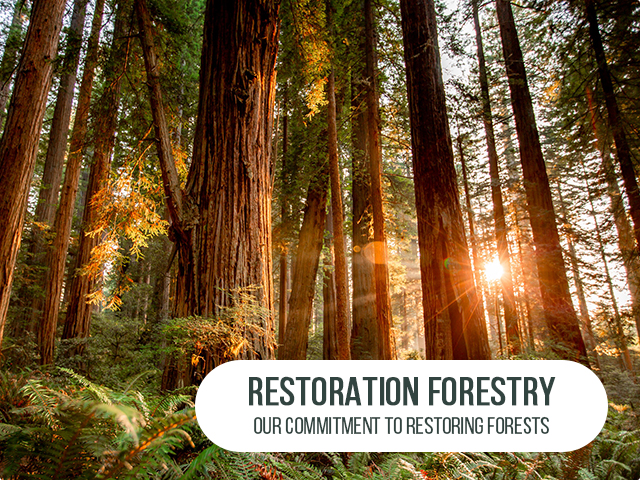I ran across a disclaimer from an online teak reseller last week. It got me thinking about teak and the tree farms it comes from. The disclaimer highlights some disadvantages of owning plantation-grown teak products. Keep in mind, this is marketing copy to entice you to buy Teak furniture!
All new teak wood will undergo a process where the natural oils of the wood rise to the surface. This process is natural and cannot be prevented. It allows dirt and residue to stick to the oil on the surface of the wood. The furniture should be cleaned by scrubbing the surface with a non-abrasive brush and using a solution of mild detergent and water. Rinse the furniture well and let it dry in the sun. All of the finishes that we offer require this general maintenance. Additional maintenance requirements for specific finishes … are described below.
Excerpted from: GO_CareAndMaintenance.pdf (PDF)
Teak is a good quality outdoor wood despite the maintenance issues mentioned above. Forever Redwood is not a fan of teak because of how the teak is grown. The teak tree farmers sing a green song and have the muscle to broadcast this message wide. But, I have visited teak tree farms in Central America. If you visited them, you’d see why we are not fans….
Teak has big companies behind it. Even Martha Stewart came out in May 2010 lauding Teak as her outdoor wood of choice. But, although it is “sustainable” and it does take pressure off the native forests somewhat, there are a few hidden “uglies” no one mentions.
The Teak industry does not mention what existed on most lands before they became tree farms. The reason is because these monoculture teak tree farms are growing where once biologically diverse forestlands existed.
Ouch. Once you understand this and verify it, the green credentials kind of have a large hole in them, don’t you think? It matters little if the tree farm is sustainable, if it’s not natural or diverse and the tree species come from another continent.
To be fair to the tree farmers, some of the native forests were cleared decades ago and some a couple centuries back. But, in too many cases, recently cut native forestlands are also being converted to tree farms.
Yes, we at Forever Redwood are tree huggers. But, not just any fast growing non-native tree will do (Teak is native to Asia). The climate situation worldwide cries out for a restoration of the many tree species that are native to each area.
Native forests exist because they’ve adapted over thousands of years to the local conditions. They create habitat, replenish aquifers, and do hundreds of other beneficial things. Fast growing money crops that grow in straight lines are not adapted to local climates and will cause problems long-term, from soil imbalances to insect infestations, and they can not be adapted for local wildlife to use as habitat.
Don’t take my word for it. Look into it yourself. It’s green marketing, my friends.
Since most of us don’t have the time to look into things, if it looks green we take it on its word. Look closely and you’ll see the not so pretty truth.
Teak tree farms are profitable because they grow quickly on cheap lands with cheap labor. On the other hand, doing forestry right takes a lot of time and money. Here at Forever Redwood, we’ll keep restoring native forestlands instead and we very much appreciate your support.
Thank you for letting me rant a bit. It keeps me sane.




